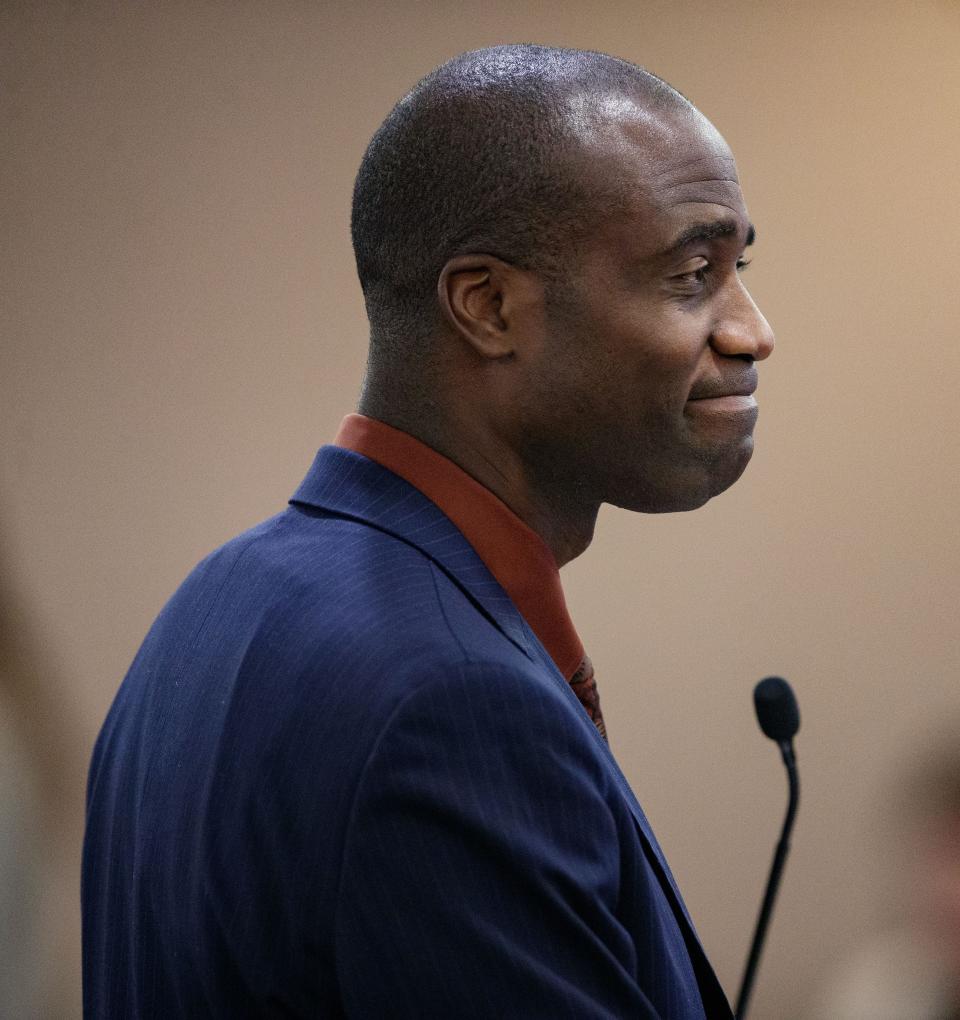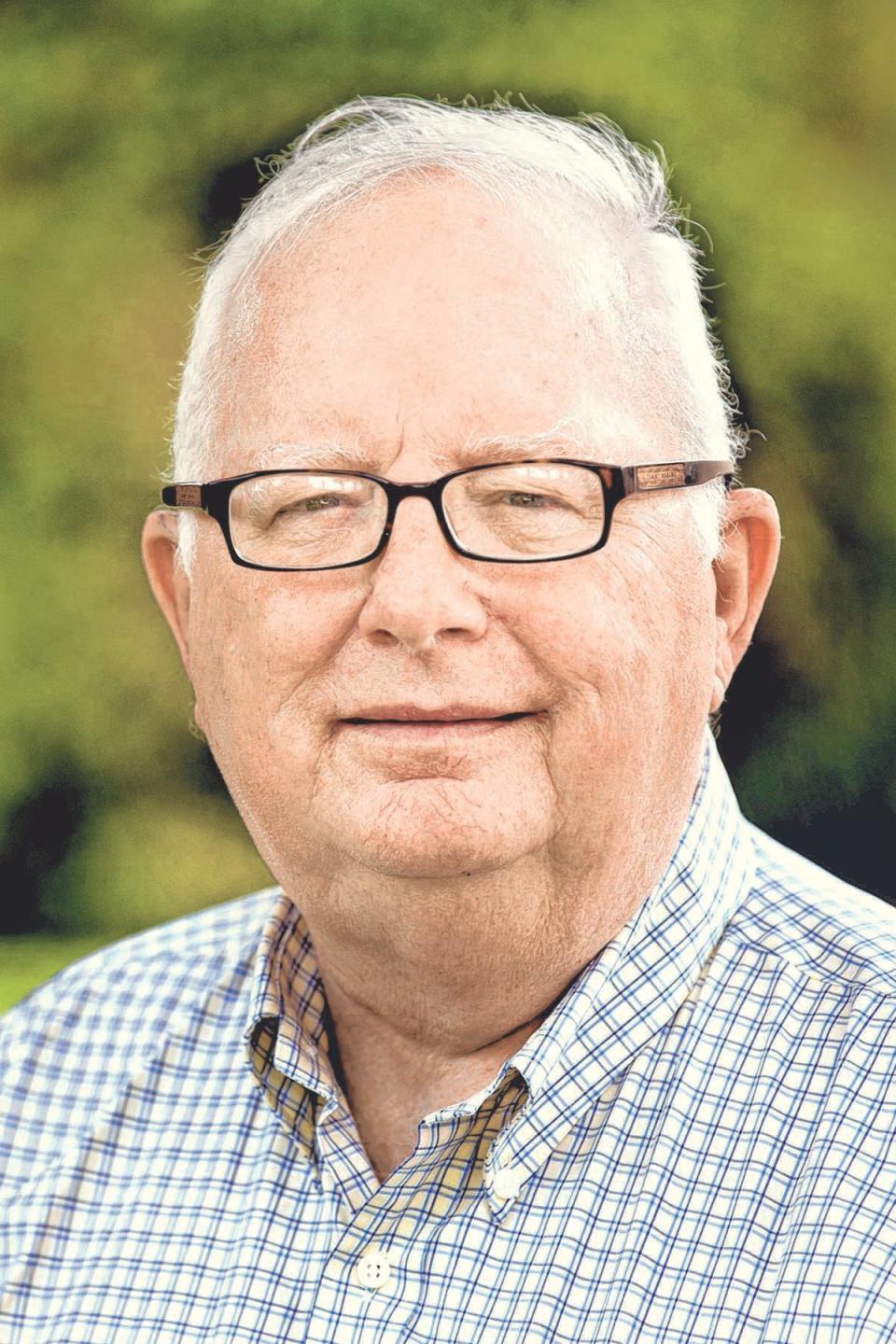Bill Cotterell: Open government shouldn’t take lawyers
- Oops!Something went wrong.Please try again later.
- Oops!Something went wrong.Please try again later.
One of the few little lessons I’ve gleaned in more than a half century reporting on government and politics is that whenever somebody says, “It’s not that simple,” we should stop right there and look at the facts.
About nine times out of 10, whatever we’re quibbling about really is that simple.

Sure, there are two sides to any argument. But very few things in public affairs are so complex that one side doesn’t plainly outweigh the other.
Consider, for instance, public records and access to government meetings. “Government in the Sunshine,” as we call it in Florida, really is that simple.
Right up front, I’ll admit that as a reporter, I’m genetically disposed to favor open records and meetings. It would be good, for the public as well as the government, if we could see a 180-degree paradigm shift in favor of full disclosure.
When anyone – nosey reporter or typical citizen – seeks some government information, the reflexive response should be, “Sure. Let me find it for you.” But what we have too often is, “Why should I tell you?”
The Florida Department of Health recently agreed to settle a lawsuit requiring it to disclose COVID-19 data, and to pay $152,500 to attorneys for former state Rep. Carlos Guillermo Smith of Orlando and the Florida Center for Government Accountability. They had sued DOH to get weekly information on vaccination counts, COVID cases and deaths, grouped by county, age, gender and race.
“The department lied about the existence of these public records in court and did everything to restrict information and downplay the threat of COVID,” Smith said in a press release issued after the settlement.
A Democrat running for the state Senate, Smith is a frequent critic of Gov. Ron DeSantis. It’s reasonable to assume he wants to use state COVID numbers to contradict DeSantis’ boasts about his record in the presidential campaign.
OK, that’s politics. The more important issue is, why would the state withhold COVID data? What great harm could befall the public if someone could just walk in off the street, ask the DOH for the numbers, and get them?
Moreover, why shouldn’t there be a presumption that public meetings and official records are open to all – rather than an assumption that people are entitled to see only what they can make the government give up? Or, more likely, what the government wants you to know.
That $152,500 settlement isn’t huge, as legal fees go, but it’s an utter waste of taxpayers’ money. And it’s an admission that the only reason DOH tried to hide the COVID data was, “We think we can get away with it.”
A DOH spokesman called the lawsuit a “political stunt” and it’s true that Smith is a frequent, vocal foe of DeSantis on many partisan matters. But the law doesn’t say agencies may withhold public information from people they find bothersome. The Health Department also found solace in language of the settlement specifying that the state did not admit any wrongdoing or illegality by its stonewalling, but that’s standard CYA language that lawyers put in every out-of-court agreement to head off future litigation or charges.
There are legitimate exemptions from Florida’s sunshine laws. The Florida Department of Law Enforcement isn’t going to show you its payroll of drug informants. In the past quarter-century of Republican rule, the Legislature has chipped away at public access and voters approved a constitutional amendment called “Marcy’s Law,” protecting the identities of crime victims – which cities and counties have stretched to suit their whims.
Nobody is trying to put the witness-protection program on the evening news. But you ought to be able to find out what a government agency is doing, especially in a pandemic, without hiring a lawyer.
The First Amendment Foundation and some other Florida news organizations joined Smith and the Center for Government Accountability in the lawsuit. It’s good that there are such open-government advocates, but this is not a matter for journalists.
At a time when public confidence in the news media is low, we can’t expect much support. But I’ve never seen a law that says reporters have a right to see official documents – the statutes refer to the public's right to know. When a state agency won’t operate openly, it’s telling the taxpayers we have a right to know only the official, politician-approved, government version of what’s going on.
It really is that simple.

Bill Cotterell is a retired Capitol reporter for United Press International and the Tallahassee Democrat. He writes a weekly column for The News Service of Florida and City & State Florida. He can be reached at bcotterell@cityandstatefl.com.
JOIN THE CONVERSATION
Send letters to the editor (up to 200 words) or Your Turn columns (about 500 words) to letters@tallahassee.com. Please include your address for verification purposes only, and if you send a Your Turn, also include a photo and 1-2 line bio of yourself. You can also submit anonymous Zing!s at Tallahassee.com/Zing. Submissions are published on a space-available basis. All submissions may be edited for content, clarity and length, and may also be published by any part of the USA TODAY NETWORK.
This article originally appeared on Tallahassee Democrat: Bill Cotterell: Open government shouldn’t take lawyers

